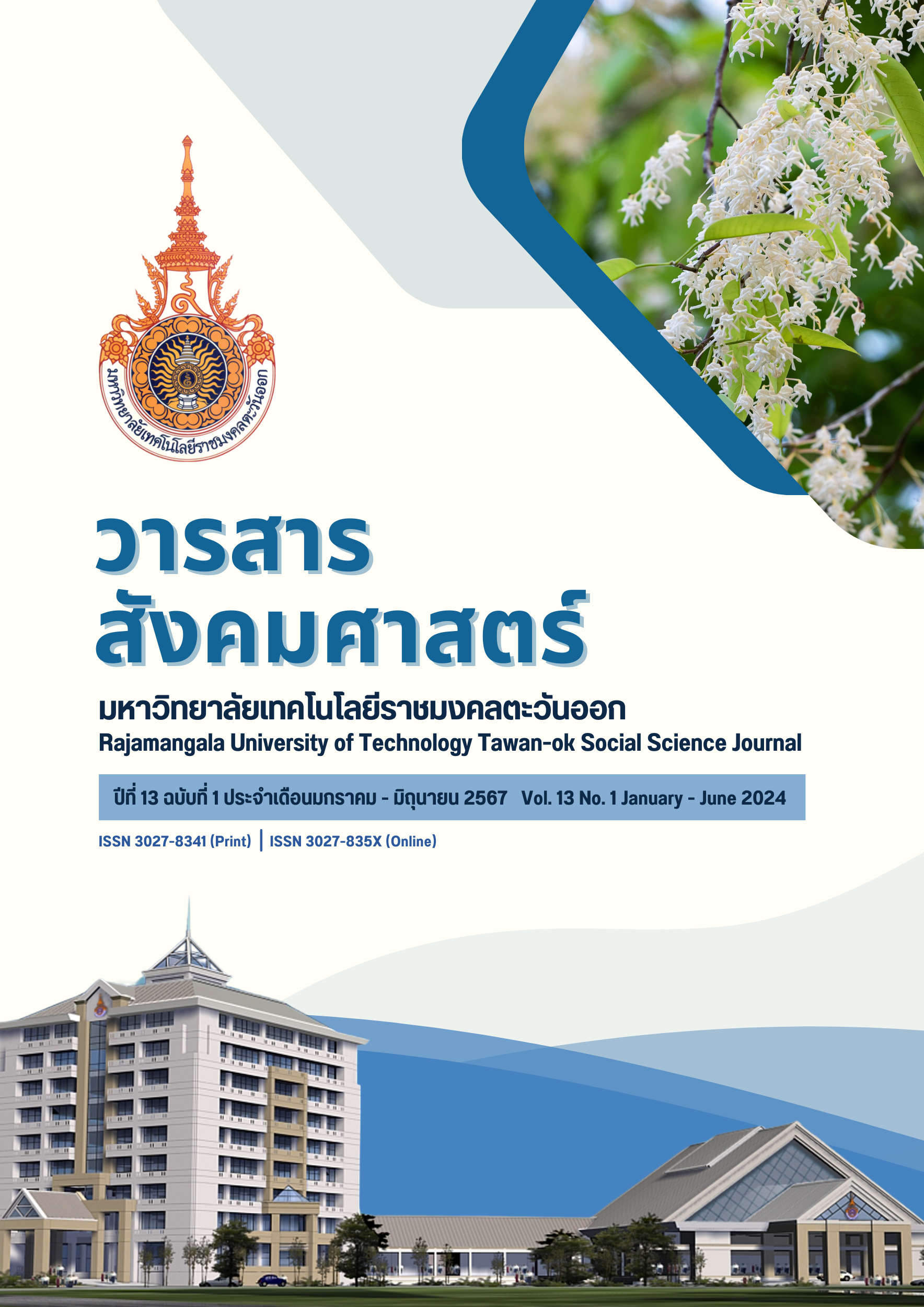Trend of the Hotel Industry in 2030
Main Article Content
Abstract
This academic article aims to explore and analyze the direction of the hotel industry in 2030. The scope of the study includes the sustainability and environmental responsibility of hotel industry, technological advancements in the hotel industry, changes in guest expectations, and challenges within the hotel industry. The methodology involves a literature review from various sources such as books, theses, research papers, academic articles, and internet searches. The analysis is conducted to forecast the future direction of the hotel industry, providing hoteliers with insights to adapt, develop their businesses, and increase profits. Through a comprehensive review of literature and current industry data analysis, the study examines key factors likely to shape the hotel industry over the next decade. The findings indicate that sustainability and environmental responsibility will become increasingly important in the hotel industry, driven by the growing demand for sustainable tourism. Hotels will need to enhance resource efficiency and reduce carbon emissions and waste to be environmentally friendly. Future technological advancements will help hotels improve operational efficiency and better ensure customer security and privacy. Changes in guest expectations are expected to be influenced by technology social changes and increased environmental awareness. The future hotel industry faces several challenges that require effective adaptation and resolution. These challenges arise from technological advancements social changes and economic and environmental factors.
Article Details

This work is licensed under a Creative Commons Attribution-NonCommercial-NoDerivatives 4.0 International License.
References
Ariffin, A. A. M., & Maghzi, A. (2012). An overview of the potential benefits of green information technology and systems in the hospitality industry. Procedia Technology, 1, 160-163.
Brammer, J., & Pavelin, S. (2008). Factors influencing the quality of corporate environmental disclosure. Business Strategy and the Environment, 17(2), 120-136.
Brammer, J., & Walker, H. (2011). Sustainable procurement in the public sector: An international comparative study. International Journal of Operations & Production Management, 31(4), 452-476.
Buhalis, D., & Sinarta, Y. (2019). Real-time co-creation and nowness in tourism: The smartphone as a networked camera in smart tourism experiences. Tourism Management, 75, 311-320.
Choi, M., & Kim, W. G. (2021). The impact of the Airbnb boom on hotels: A comparative analysis of price-performance trade-offs. International Journal of Hospitality Management, 95, 102926.
Chai, A., & Lorenzo-Romero, C. (2012). Competing successfully in the hotel industry: A case study of strategic human resource management. International Journal of Hospitality Management, 31(2), 473-482.
Euromonitor International. (2023). Global Travel Trends: 2023. London: Euromonitor International.
Gössling, S. (2021). The Routledge Handbook of Tourism and Sustainability. London: Routledge.
Ko, D. W., & Stewart, W. P. (2002). A structural equation model of residents' attitudes for tourism development. Tourism Management, 23(5), 521-530.
Kim, J. S., Lee, C. K., & Vogt, C. A. (2015). The influence of mega-events on host destination sustainability. Sustainability, 7(8), 11260-11274.
Gössling, S., Scott, D., & Hall, C. M. (2020). Pandemics, tourism and global change: a rapid assessment of COVID-19. Journal of sustainable tourism, 29(1), 1-20.
Huang, L., Banerjee, P., & Deshmukh, A. (2020). Research on information technology in the hospitality industry: A review and analysis. International Journal of Contemporary Hospitality Management, 32(1), 33- 70.
Hall, C. M., & Williams, A. M. (2008). Tourism and innovation. Routledge.
Kim, J., & Ritchie, J. B. (2014). Cross-cultural traveler behavior: A preliminary study. Tourism Management, 40, 45-56.
Kim, J. S., Lee, C. K., & Vogt, C. A. (2015). The influence of mega-events on host destination sustainability. Sustainability, 7(8), 11260-11274.
O'Neill, J. W., & Mattila, A. S. (2020). Hotel guest service robots: Will the promise ever be realized? International Journal of Hospitality Management, 91, 102591.
Pizam, A., & Mansfeld, Y. (2012). Consumer perceptions of hotel safety. International Journal of Hospitality Management, 31(1), 99-110.
Rittichainuwat, B. N. (2019). Tourism crises and disaster recovery in Southeast Asia: Impacts, responses, and opportunities. In Tourism in Southeast Asia (pp. 61-74). Routledge.
Sigala, M. (2017). The impact of web 2.0 on the future of the tourism and hospitality industries Tourism. Management, 29(3), 461-471.
Sigala, M. (2018). Customer engagement: A key differentiator for customer experience management. Journal of Service Management, 29(4), 484-508.
Srinual, N., & Scaglione, M. (2018). A comparative analysis of hotel prices in Thailand. Journal of Travel & Tourism Marketing, 35(9), 1114-1124.
Smith, A. (2021). Tourism: Principles and Practice. London: Routledge.
World Tourism Organization. (2023). Tourism Highlights 2023. Madrid: World Tourism Organization.
World Travel & Tourism Council. (2022). Economic Impact Report 2022. London: World Travel & Tourism Council.


